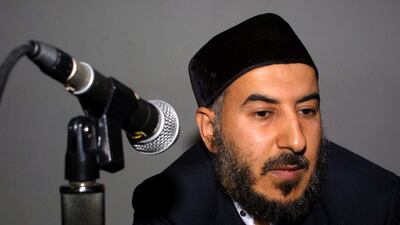The British government can’t strip an Egyptian extremist of refugee status despite his links to the murder of a leading anti-Taliban commander two days before the September 11 attacks on the United States in 2001, a UK court ruled.
Judges this week rebuffed Home Secretary Priti Patel’s efforts to cut the UK residency rights of Yasser Al Siri, who faces the death penalty in his native Egypt but has lived in Britain since claiming asylum in 1994.
The removal of his refugee status would have ended Mr Al Siri’s right to an unlimited stay in the UK, where he has been labelled a threat to national security because of his support for extremist groups including ISIS and Al Qaeda.
Ms Patel wanted him to have renewable six-month stay in the UK with Mr Al Siri needing her permission if he wanted to move house, get a job or embark on a course. But the three judges ruled against Ms Patel allowing Mr Al Siri to remain indefinitely.

“It is clear why Yasser Al Siri does not want to return to Egypt. Yet it is equally clear why the UK government considers him a national security threat,” said Robin Simcox, director of the UK-based Counter Extremism Group.
“Al Siri has been linked to proscribed terrorist groups for many years and continues to espouse violent Islamist views today.”
The National revealed last year that Mr Al Siri's presence in Britain has been an irritant in the relationship between the two countries dating back to the 1990-1997 administration of former prime minister John Major.
Mr Al Siri was convicted in his absence in Egypt in 1994 for his alleged involvement in a failed bombing targeting then-prime minister Atef Sidqi. Five years later, Mr Al Siri was sentenced to 15 years in prison for membership of a banned organisation.
He was charged with conspiracy to murder in the UK after writing a letter of introduction used by two suicide bombers, pretending to be journalists, to trick their way in to see Gen Ahmad Shah Masoud, the leader of the Northern Alliance, in September 2001.
Gen Masoud was thought to have been killed on the direct orders of Osama bin Laden immediately before the attacks on Washington and New York as he represented the most effective ally if the West launched retaliatory attacks on the Taliban.
But a British judge threw out the case as it was not clear if Mr Al Siri knew of the intention to kill the Northern Alliance leader.
Subsequent immigration tribunals questioned whether he was “innocently duped” by the suicide bombers who tampered with his letter.

The Egyptian also successfully avoided extradition to the US to face terrorist funding accusations.
But the UK government continued to pursue Mr Al Siri after he set up an organisation called the Islamic Observation Centre that promoted Islamist groups. Mr Al Siri was pictured in 2008 with Abu Qatada, the extremist preacher described by officials as the spiritual leader of Al Qaeda.
His work included publishing 2,000 copies of a book, with a foreword by Mr Al Siri that espoused the killing of Jews and social media posts with pictures of ISIS suicide bombers in Libya.
He also expressed support for the ‘Blind Sheikh’ Omar Abdel Rahman, who was convicted of conspiracy in the US in relation to the 1993 World Trade Centre bombing that killed six people. He died in 2017.
Mr Al Siri said on social media in December 2017 that Egypt’s President Abdel Fattah El Sisi should “end up” like Colonel Muammar Qaddafi, who was killed after he was found hiding in a tunnel.
But judges said that new claims of extremism by Ms Patel’s department did not affect the earlier decision to give him refugee status.
The core principle at the heart of the UN’s Refugee Convention is the principle that a person fleeing their country should not be returned if they face serious threats to their life or freedom.
The principle can be revoked if there are “reasonable grounds for considering they are a danger to the national security of the host state”.
Mr Al Siri’s lawyers said the ruling found that there “is no basis for regarding him as a danger to the UK’s security such as would justify denying him the protection of refugee status”.
A Home Office spokesperson said it was disappointed with the judgment and was "carefully considering our next steps".


